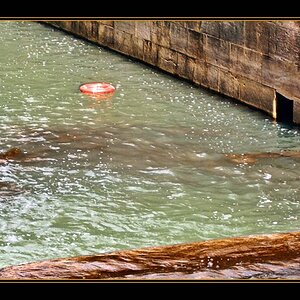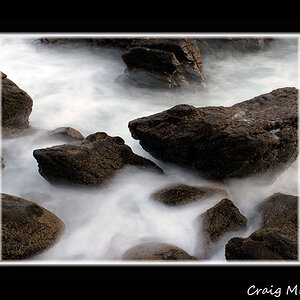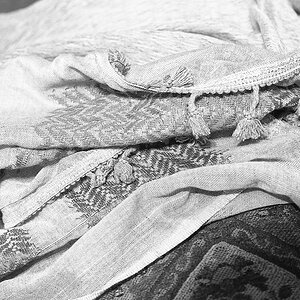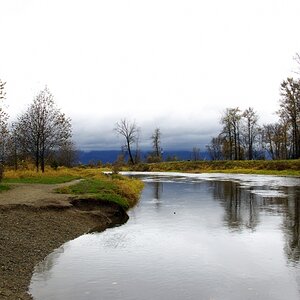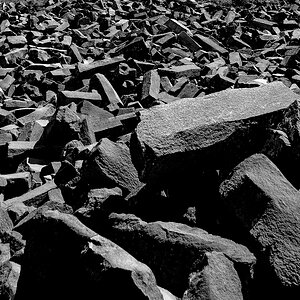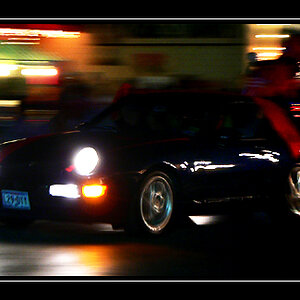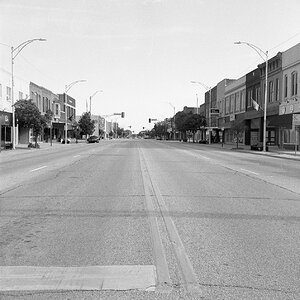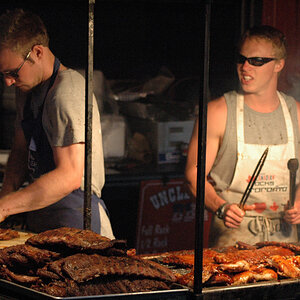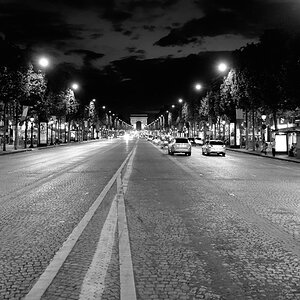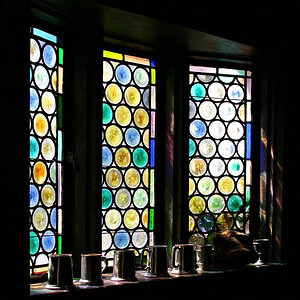Alexandra
TPF Noob!
Ok, first I need to confess. I never ever ever developed films and i've never been in a darkroom. That being said and now that you all know how lame I really am, i'm moving on to my important topic.
I just understood that I was seriously into photography. I love it more than any form of art i've tried so far, and I'm thinking of seriously comitting myselft to it. Therefore, of course, I need a darkroom.
(ok, i think i'll "bold" the important parts for those who don't wanna read all my rambling.)
So, I'm looking for any useful advice.
My parents will help me out with the basics, like processing and stuff. Actually they both studied polygraphy (is that the word for it?) and printing-related subjects in university and throughout their whole life they've been developping their rolls stacked in the bathroom with a red sock tied over the bulb... Considering that i'll have to work in similar conditions, their basic advice will do. They're both awesome for helping me out, here.
But, as there is always a but, they were not really doing "photographic" stuff, their thing was just frieds' and family snapshots, so there are things they might not know.
I know this place if full of experimented and knowing people, so please, pity the darkroom newb and help me out! If you have any advice, infos and facts that would be useful for me to know, advice on any extra equipment or chemicals i might need for advanced things, organisation tips, whatever comes to your mind... Please, let me know!
All advice, tips and ideas (and I repeat: other than very basic stuff. I already know the very basic stuff.) are oh-so-welcome!!!!
I just understood that I was seriously into photography. I love it more than any form of art i've tried so far, and I'm thinking of seriously comitting myselft to it. Therefore, of course, I need a darkroom.
(ok, i think i'll "bold" the important parts for those who don't wanna read all my rambling.)
So, I'm looking for any useful advice.
My parents will help me out with the basics, like processing and stuff. Actually they both studied polygraphy (is that the word for it?) and printing-related subjects in university and throughout their whole life they've been developping their rolls stacked in the bathroom with a red sock tied over the bulb... Considering that i'll have to work in similar conditions, their basic advice will do. They're both awesome for helping me out, here.
But, as there is always a but, they were not really doing "photographic" stuff, their thing was just frieds' and family snapshots, so there are things they might not know.
I know this place if full of experimented and knowing people, so please, pity the darkroom newb and help me out! If you have any advice, infos and facts that would be useful for me to know, advice on any extra equipment or chemicals i might need for advanced things, organisation tips, whatever comes to your mind... Please, let me know!
All advice, tips and ideas (and I repeat: other than very basic stuff. I already know the very basic stuff.) are oh-so-welcome!!!!



